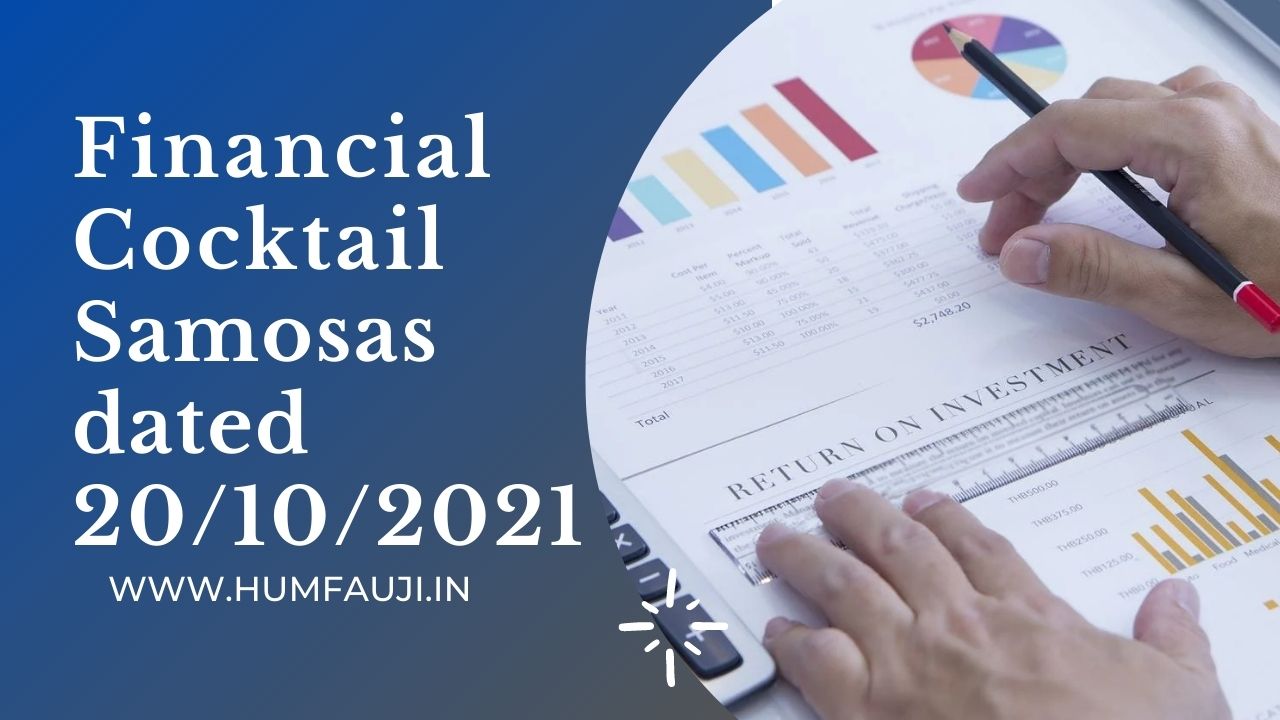Hope you have your tax planning worked out
‘Money saved is money earned.’ Insurance, Investments and retirement planning are crucial aspects in an individual’s life. In order to promote a culture of being insured, educated and having a secured post retirement life, the Govt has introduced various tax deductions as incentives. Most common tax deductions to reduce your taxable income are as follows under the indicated Income Tax Sections:
- 80C:Principal component of home loan, amount invested into DSOPF/PPF/EPF, ELSS, NPS, tuition fee of your children etc are eligible to for a total deduction of Rs.1.5 lacs in a financial year.
- 80D:Health insurance premium of family is eligible for a maximum deduction up to Rs.55,000, subject to conditions.
- 80E:Interest paid on education loan is eligible for claiming tax deduction.
- 80CCD1(b):50,000 invested into NPS will be eligible for deduction over and above the Rs.1.5 lacs limit as described under 80C.
You also need to be careful of paying your taxes on time. While in service, your fauji pay authorities deduct most of your tax due and you do not have to bother about it. Post-retirement it may not be so and you have to be very careful that you pay your dues on time lest you end up paying penalties due to delayed advance tax payments.
Advance tax refers to the fact that income tax needs to be paid in advance through the year instead of as a lump sum payment at year end. It is also known as pay as you earn tax. These payments have to be made in instalments as per scheduled due dates provided by the income tax department. If your total tax liability is Rs.10,000 or more in a financial year, you have to pay advance tax. Advance tax applies to all taxpayers, salaried, freelancers, and businesses. Senior citizens, who are 60 years or older, and do not run a business, are exempt from paying advance tax.
Due Date Advance Tax Payable
On or before 15th June 15% of total anticipated tax in the year
On or before 15th September 45% of advance tax less advance tax already paid
On or before 15th December 75% of advance tax less advance tax already paid
On or before 15th March 100% of advance tax less advance tax already paid
(Contributed by Abhinandan Singh, Associate Financial Planner, Team Arjun at Hum Fauji Initiatives)
What free investing apps give you and what do they take away from you?
Do you prefer, and are satisfied with, following googled prescriptions over a qualified Doctor’s prescription to cure your disease? If yes, then investment apps are best fit for you, else you must approach a professional financial planner.
These apps do provide a ready and easy way to invest, broad-brush market analysis, and generalised recommendations applicable to all but these are just operational conveniences. Real game of investment planning is much more complex than this – a customised investment plan as per your future requirements, dealing with investors’ behaviour, and most importantly, investing as per your comfort level (risk profile), are the things which only a human financial advisor having meaningful one-to-one conversations with you can take care of. Investment apps won’t stop you from taking a sentimental decision due to market’s fluctuations, which could prove to be devastating for your investments later. Neither will they stop you from investing into high-risk investment avenues which you may regret later.
In most of the cases, apps function on pre-set algorithms on the basis of which it keeps on rating the funds without taking other factors into account that may misguide you.
Most importantly, we all are aware that a client’s data (Phone number, Address, E mail etc) is put on Sale by these apps for monetary considerations so very frequently.
When you decide to invest, do take a decision based upon both positives and negatives of all available investment alternatives.
(Contributed by Priyanshu Chauhan, Associate Financial Planner, Team Arjun at Hum Fauji Initiatives)
Enjoy this festive season judiciously
1) Don’t over spend: Discounts via credit cards, shopping apps (Amazon, Flipkart etc) as well as physical stores will be quite tempting. Spend judiciously without disturbing your budget and critical future goals.
2) Increase your monthly/bulk investments on the auspicious occasion of Dhanteras/Diwali: Inflation impacts your expenses. Your upcoming goals like Children’s education/Marriage etc are your big future expenses and their cost will increase tremendously over the years. You must increase your monthly savings on annual basis to counter its effect.
3) Try to light a Diya of happiness for the needy this Diwali: Spending on ourselves is just not enough. We pay the taxes but that’s again not enough. Charity/Donation which use to be an integral part of our principles in olden times need a revival. Start a ‘Humanity SIP – Monthly contribution to a soul enriching journey’. The annual accumulation of Humanity SIP can be withdrawn and donated to the pilgrimage/NGO of your own choice. This may provide you tax deduction under Section 80G too.
4) Gift a Real Suraksha Kavach to your loved ones: In Indian festivals like Bhai Dooj, Karva Chauth etc, we pray for the long life of our loved ones. We exchange gifts for the happiness of each other. Gifting a comprehensive health insurance to your loved ones will be an actual value addition to your love and care, and prayers and beliefs.
5)Last but not the least, our fight with COVID is yet not over. Keep Social Distancing and Use Mask.
Happy Festivities..!!
(Contributed by Jatin Uppal, Deputy Manager at Hum Fauji Initiatives)


